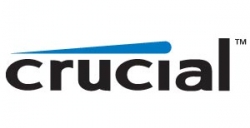 |
Test System
- Intel Core i7-4960X
- MSI R9 280 and Sapphire 7950 Crossfire
- Asus P9 X79-E WS Motherboard
- ADATA XPG V2 DDR3 2600 MHz 16 GB RAM kit
- NZXT Phantom 410 Case
- Corsair H100 CPU Cooler
- Thermaltake Toughpower 1350W Power Supply
Benchmarks
Anvil Storage Utilities
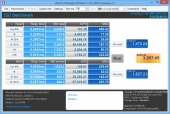 |
 |
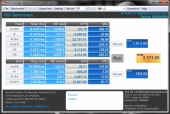 |
| MX100 | SX900 | M4 |
Anvil is a good overall benchmark using incompressible data that gives results in MB/s and IOPS for both read and write.
The MX100 greatly surprised me with its performance, pulling 485/439 MBps read/write and putting itself well ahead of the ADATA SX900’s 422/172 read/write and the Crucial M4’s 499/154 read/write.
While still much better than the competition, the IOPS results for the MX100 were much lower than the claimed 90k/85k, instead pulling just 48k/67k.
AS SSD
 |
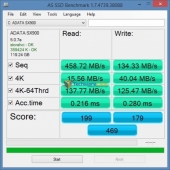 |
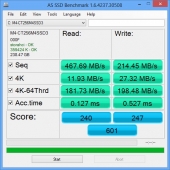 |
| MX100 | SX900 | M4 |
AS SSD is another good benchmark which really stresses incompressible data, giving us a “worst-case” scenario.
Here the results were about the same as the Anvil benchmark. Reads were just just a little ahead of the competition but writes were miles better, putting up a read/write of 482/458.
ATTO
 |
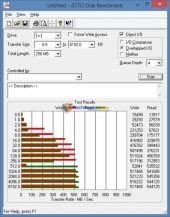 |
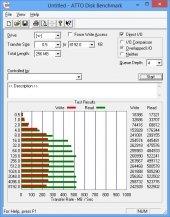 |
| MX100 | SX900 | M4 |
If AS SSD provides us with a “worst case”, then ATTO would be our “best case” because it uses fully compressible data. This is the benchmarks that gives out the huge numbers that manufactures love to throw around.
Our MX100 was just a tad short of the claimed 550 read 500 write, instead pulling 526 read 498 write. This is actually slightly lower than the SX900, showing that the ADATA drive excels more in compressible data while the Crucial is all about incompressible.
CrystalDiskMark
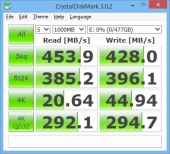 |
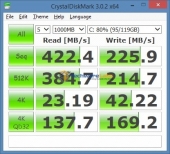 |
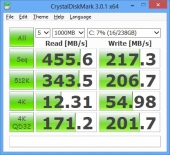 |
| MX100 | SX900 | M4 |
CrystalDiskMark is another good benchmark for getting an overall idea of a drives real-world potential.
The results here confirm what we gathered from the other tests. Reads are all pretty close, writes are much better on the big MX100.
